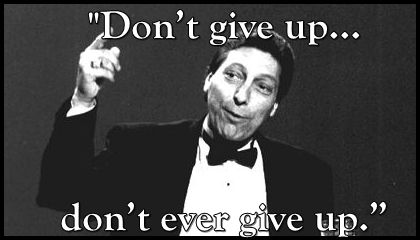Repost - one of my favorite articles. Doctor-Fo
Post# of 72451

Doctor-Founder-Billionaire Talks About Biotech Investment, Stocks
Not a lot of biotechnology entrepreneurs go on to count their wealth in billions, build supercomputers or own a significant piece of the Los Angeles Lakers basketball team.
But that’s been the trajectory of Dr. Patrick Soon-Shiong, who launched and sold two biotech startups–together worth nearly $8 billion. He now is heading up a new endeavor featuring artificial intelligence, semiconductors, cloud databases, a supercomputer, nano-optics and fiber-optic cable, all in the name of improving the country’s health-care system.
Dr. Soon-Shiong is also a heavy investor in publicly traded biotech stocks, he said.
The public markets last year welcomed dozens of new entrants from the world of biotech, but many have not been able to sustain the enthusiasm from investors. Many today are trading below their offering price, prompting some to speculate that there could be a biotech bubble.
Dr. Soon-Shiong says that is not the case, and that pressing medical needs will buoy many stocks beyond their initial ups and downs.
And while he stopped short of saying that his new company–Los Angeles-based Nantworks LLC–will definitely file to go public, he said he expects the company to become a powerful standalone player in the high-tech health system that the country is moving toward. He talked to Venture Capital Dispatch about the complex picture for new biotech issues on the public markets.
Q: What is your view of a situation where a lot of companies go public over a short time, and then have a very mixed performance? Is it something people should worry about?
A: No, absolutely not. The evolving tools of science, and their promise, have never been as exciting as right now. There are some real breakthrough drugs out now, particularly in cancer. It’s not a bubble, but people have followed each other [onto the public markets]. There’s been a pent-up demand for growth companies, and there’s capital out there. You will definitely see some of these companies stand the test of time.
As far as the ones that aren’t performing as well, sometimes it’s not the companies, it’s the market. The market is not scientifically driven. People should analyze the fundamentals, not the stock price.
Q: So how does one do that? How can people spot a healthy biotech company, putting aside its stock price?
A: There’s no way to generalize. But you ask: Is the science sound? Is there an unmet need? Has the company built a translational application that is demonstrable in trials? Can you do this at scale? Does the technology improve or impact outcomes for the patient?
If it brings value to the patient, it’s a company of value. We spend $4.3 trillion a year on health-care in the U.S. If the focus of your company is to increase value to the patient, then you will organically grow. A lot of these companies have zero revenue, so the only way to measure them, really, is to ask: Is there forward movement of this technology platform?
Q: What other advice would you give to biotech investors?
A: It’s science. It’s a 10-year horizon. Not everyone wants to invest with a 10-year horizon. There are long lead times, there are trials. If you’re impatient, as an investor, it can be bumpy. Choose wisely, because it takes a decade. It’s never a short-term thing.
When I took American Pharmaceutical Partners public in 1998, it opened at $14 a share. It dropped to $8 a share. Later on, we were so confident of the technology and the business model that we bought $30 million of the stock back. This was eight months after our IPO.
Our drug [a formulation of cancer drug Heparin] came out in 2001, and our stock hit $45 per share. It later split into two companies, and they were both acquired. In 2008, APP was the only safe supplier of Heparin in the country. That’s not a business model. That’s a company focused on benefitting the patient.
Q: So what does the future hold for these biotech stocks?
A: The strong will survive. Not strong as in financial strength, but sustainable value–value to the patient.
http://blogs.wsj.com/venturecapital/2014/06/2...oon-Shiong
 (3)
(3) (0)
(0)Innovation Pharmaceuticals Inc (IPIX) Stock Research Links
